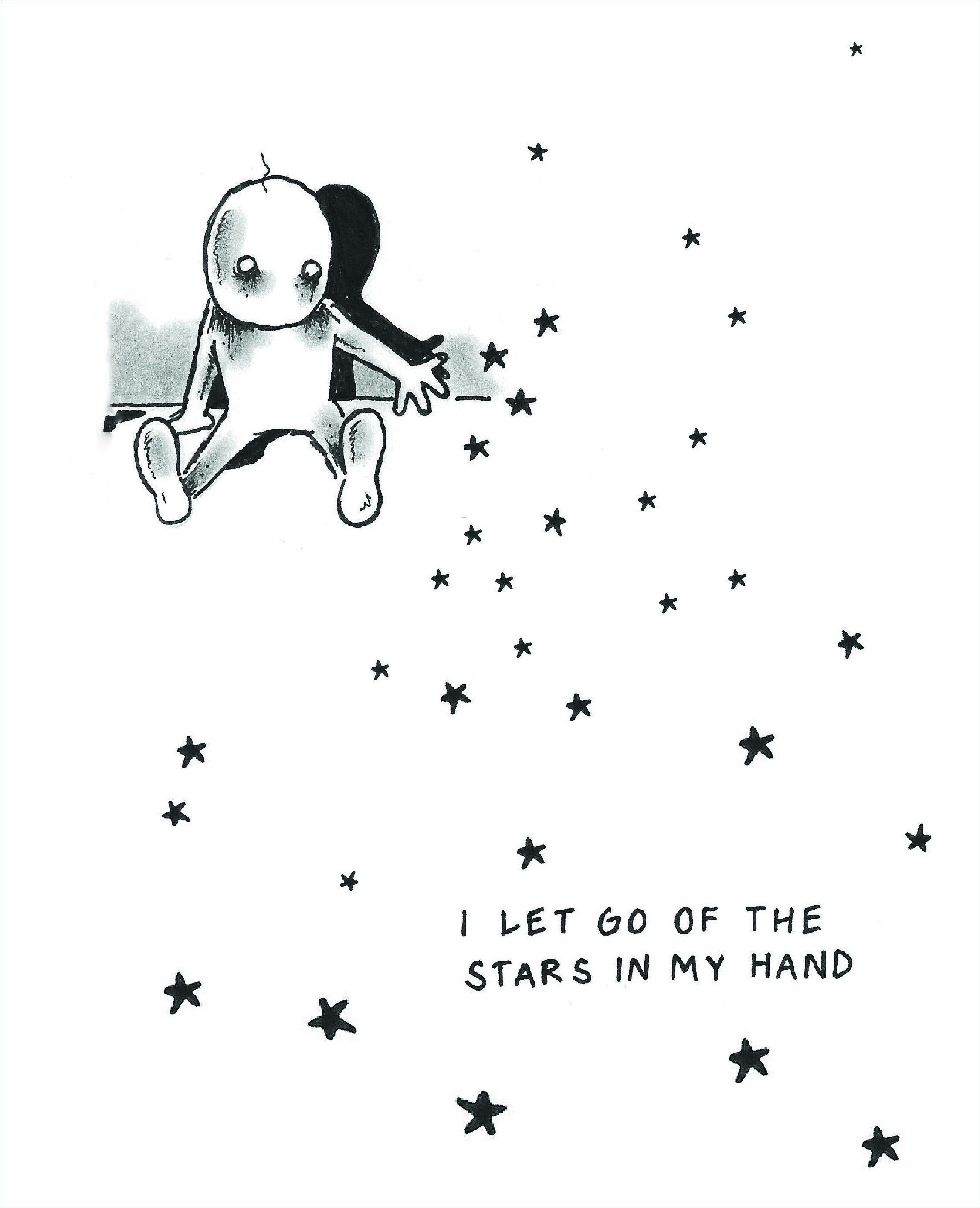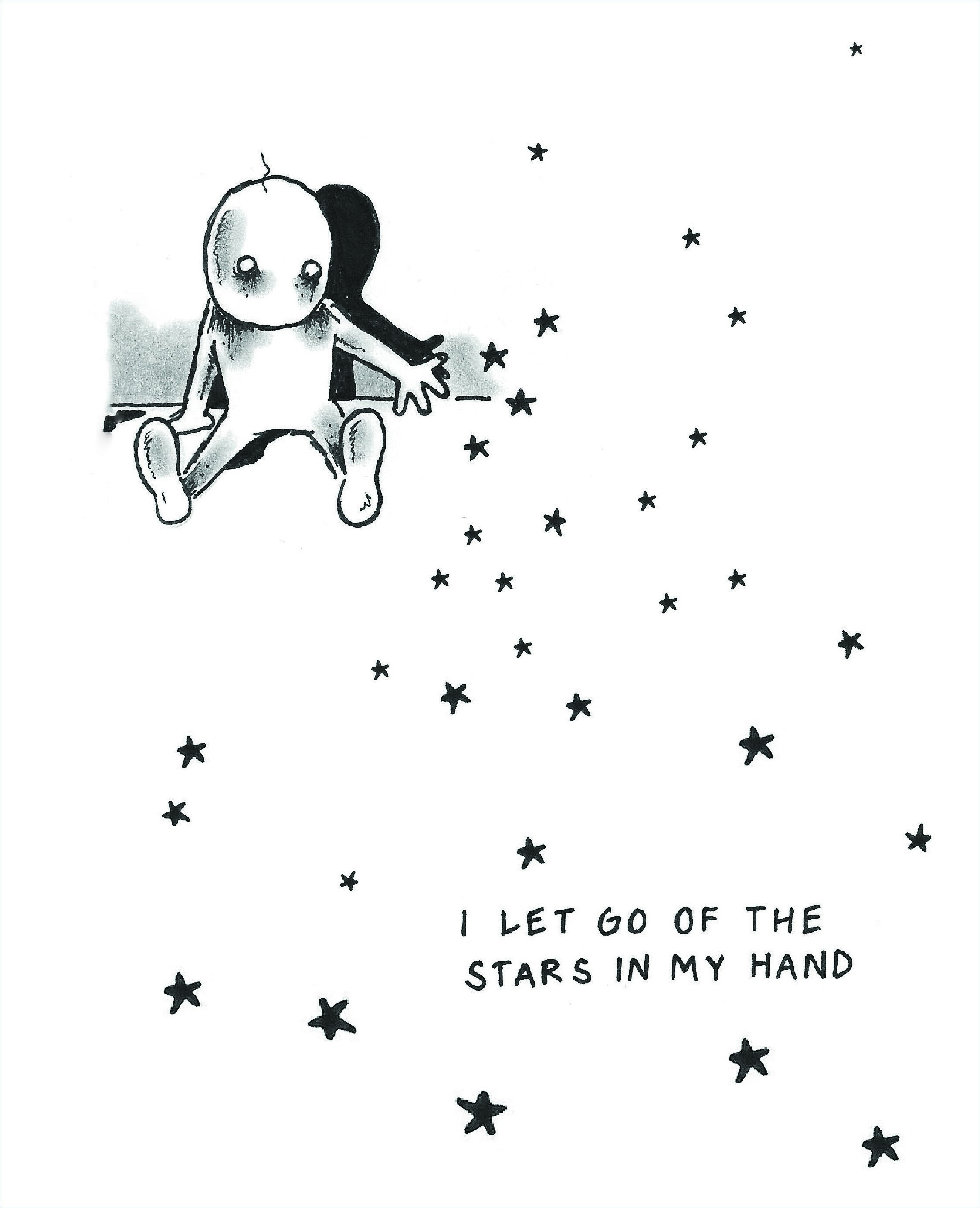Purchase from Barnes & Noble
Purchase from your favorite bookstore, including off-the-shelf at Bluestockings
praise for meant to wake up feeling
Aimee Herman’s latest volume of poetry, meant to wake up feeling, could be described as poetic counterterrorism. Rather than mounting a series of covert actions, however, these poems intimately resist the terrorism of the powerful (or the righteously normative) against the embodied other. The book lives up to its title and its mission, as both model and process of resistance....The work done in this book is desperately necessary. The next time someone grumbles about the uselessness of poetry, put these poems in their hands." - Jay Besemer, Rain Taxi (volume 20, print edition)
*
The grace, honesty, and bravery with which [Herman] addresses issues that many won’t touch with a ten-foot pole will shake you to the core. - Lily Rex, Blotterature
*
Visceral, insistent, beyond transgressive, meant to wake up feeling does just that. It is a palpable writing of the body in Helene Cixious's demanding and powerful sense of the act. Gratitude to Aimee Herman for getting under our skin, and moving poetry-in-discourse into the feminist present and future where we study and yearn for the salvation of humanity. —Anne Waldman, author of "Gossamurmur" and "The Iovis Trilogy"
*
meant to wake up feeling is an extraordinary book and Aimee Herman is a major talent. She mixes and remixes, configures and reconfigures language inventing new language and visual art. She says, "Do not live just because you can." meant to wake up feeling is a series of individuals: an epic poem, a sexy political queer song about the body definition/redefinition relationship, diS-ease and transcendence. —Pamela Sneed, author of "Imagine Being More Afraid of Freedom Than Slavery" and "KONG and Other Works"
*
Aimee Herman speaks to her and all generations past and present with these strong transcendent poems and ever-pressing issues. As Herman puts it "i am in-between the sentence structures of my body." A body of work, which I kept embracing as I fell in between these fragmenting lines of poetic thought. Always questioning, Herman asks: "if you steam open the body / will you find what was really there?" and answers "alphabetized psychosis." I say yes and perhaps a bit of uneasy (dis)comfort as well. To misquote Herman: Dear Aimee, every time I turn these pages I believe in you even more. Keep these transmissions coming.—Steve Dalachinsky, author of the PEN Oakland National Book Award winner "The Final Nite"
*
Aimee Herman continues her profound, unflinching explorations of love, violence, and the physical body in poems that are exquisitely crafted, dangerous and thrilling. meant to wake up feeling definitely lives up to its name. —Jessica Hagedorn, author of Dogeaters" and "Toxicology"
*
bio
Aimee Herman is a Brooklyn-based poet and performance artist looking to disembowel the architecture of gender and what it means to queer the body. Find Aimee's poems in the anthology Troubling the Line: Trans and Genderqueer Poetry and Poetics (Nightboat Books, 2013), in the full-length collection to go without blinking (BlazeVOX books, 2012), and the recent chapbook rooted (dancing girl press). Aimee is an adjunct professor at Bronx Community College, a faculty member with Poetry Teachers NYC, and a writing mentor/workshop facilitator for the Red Umbrella Project through their memoir writing drop-in classes specifically for those in the sex trades. Aimee was recentlty mention in Witty Bitches list of Potent Female Artists You Should Know, Now. Read more at: aimeeherman.wordpress.com.
Aimee Herman, meant to wake up feeling
Publication date October 10th 2014
$16.00
ISBN: 978-0-9857317-4-8
Purchase through IndieBound, amazon, Barnes & Noble, or order online or in person at your favorite bookstore (e.g. Powell's, McNally Jackson, Tattered Cover, Word, Bookshop West Portal, or Greenlight Bookstore.) For international orders, all great weather for MEDIA books are quickly and easily ordered through any local online or bricks-and-mortar store.
Also available through the wondrous Espresso Book Machine. Like an ATM for books, it will print you a copy in minutes. Find it at McNally Jackson (NYC), NYU Bookstore (NYC), Tattered Cover (Denver), and many other stores.









